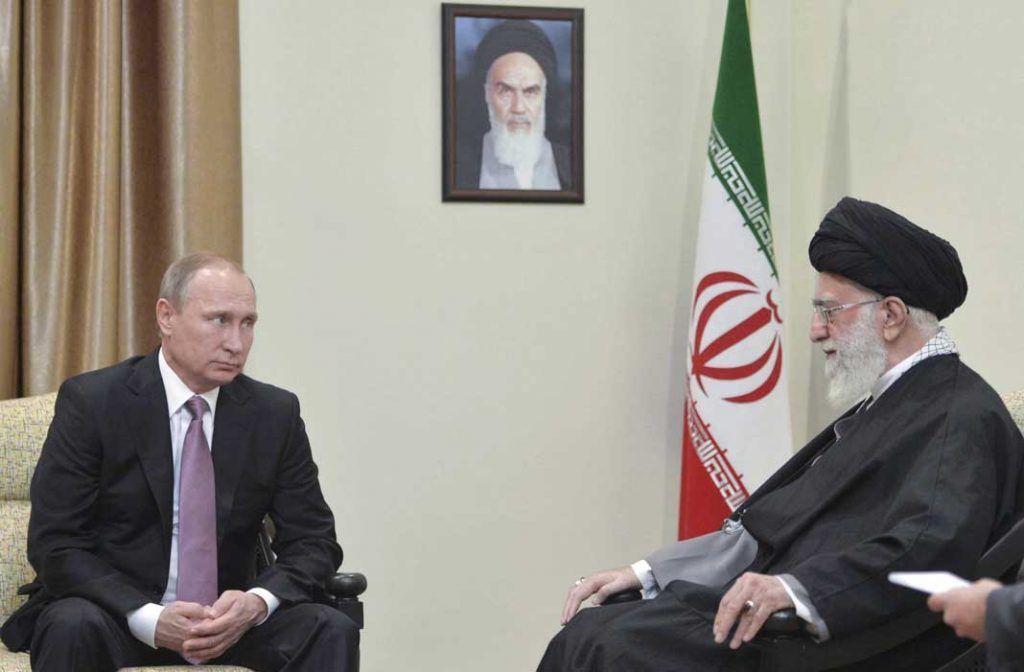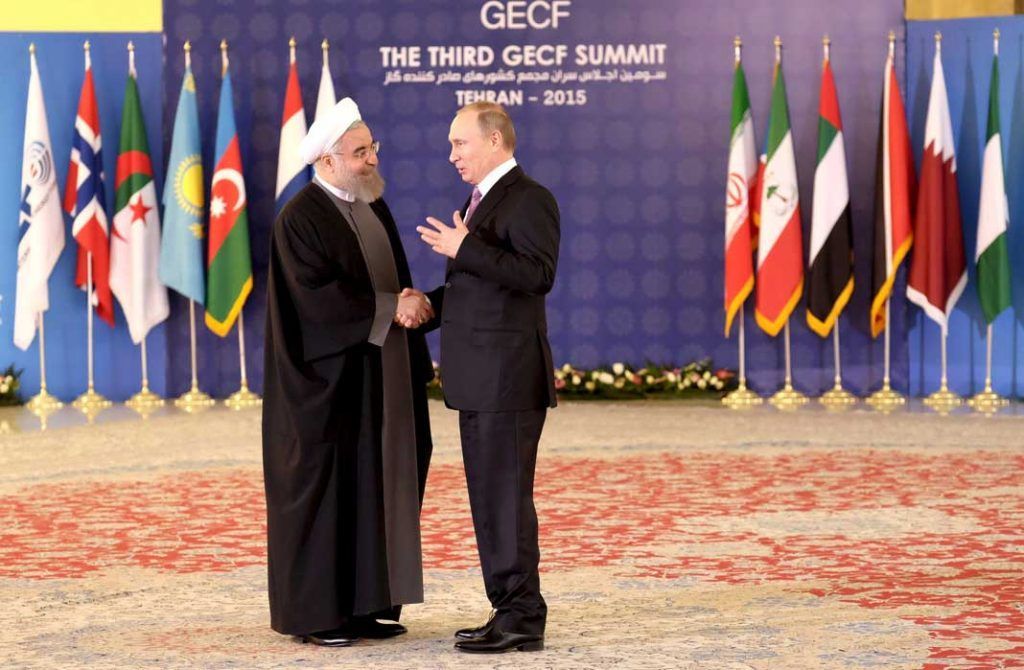February 15, 2017
By Peyman Pejman
President Donald Trump has not put forward too many concrete foreign policy principles since taking office last month but one of the more consistent convictions as a candidate was his assumed friendly relations with his Russian counterpart Vladimir Putin.
As the theory went, the Trump-Putin “bromanship” would enable Washington to forge better ties to de-escalate hotspots such as Syria, in which Moscow is active. Through that, it was further argued, Moscow could use its influence on players such as Iran to further defuse conflicts in others countries such as Yemen, Iraq, and potentially Lebanon.

With this week’s abrupt firing of former National Security Advisor Michael Flynn because of his alleged improper phone calls with the Russian ambassador to the United States before either Flynn or Trump were officially in office, some observers are again questioning the validity of that presumed foreign policy domino effect.
Just as telltale signs are emerging from the American side, even Russian observers and officials seem to be signaling possible rupture in the geopolitical calculations, especially as they relate to the Moscow-Tehran relations, with their implications for other parts of the world.
The normally-pro Kremlin newspaper Pravda ran a widely-circulated article on January 22 –before Flynn was fired – with the headline: “Iran Is Becoming A Major Problem, First And Foremost For Russia’s Interests.”

The article’s author, Dmitri Nersesov, Pravda’s Middle East analyst told Kayhan London that while Russia still wants to have solid and lasting geopolitical relations with Tehran, it cannot trust the leadership of the Islamic Republic.
“The problem is that the Iranians are just like the Anglo-Saxons, they have no enemies or eternal friends, they have only interests. Of course, this is good from the basis of pragmatism, but also something the Russians do not understand,” Nersesov said in response to written questions in French, which this newspaper translated into English.
“For the Russians, the ideal is predictability. In this context, if we say that Iran is our ally, the Russian [leadership] assumes that Iran is a friend for all times, under all circumstances. But in reality, Iran is an ad hoc ally,” he added.
While the exact causes of Moscow’s reconsidering its relations with Tehran have not been fully elaborated, much of it seems to be filtering out in the context of Syria.
One example was the row between Moscow and Tehran over the Islamic Republic allowing Iranian airbases in Russian bombing operations in Syrian. While Tehran allowed the transit rights, Moscow publicly commented on the issue, drawing Tehran’s ire. The Islamic Republic stopped the agreement.
“After the story of the Russian ACF [Air-Cosmos Force – in 2015] usage of the Iranian Hamadan military airbase, it became absolutely clear that Tehran cannot be fully trusted,” Nersesov wrote in his January 22 Pravda.Ru article.
He seeming fracture in the Moscow-Tehran relations also seems to be related to Trump’s opposition to the so-called P5+1 nuclear deal which Tehran signed with major European powers and the United States.
Then-candidate Trump was open about his opposition to the deal, calling it “the worst deal ever” and blaming the previous Obama administration for not having been tough enough on the Islamic Republic.
In an article published in Kayhan London on February 9, (https://kayhan.london/1395/11/21/us-iran-sailing-into-unchartered-waters), John Bell, Director of the Middle East Programme at the Toledo International Centre for Peace in Madrid, said Trump’s utterings might prompt Tehran to readjust its own geopolitical calculations.
“The Iranians now have a new expectation set regarding the relationship with the region, with the world and with the United States. That expectation set is based on having cut a [nuclear] deal so they are at Level X and all of a sudden Trump has come back to pre-deal attitude. That is not a very healthy scenario and a potentially combustible one,” said Bell.

Some analysts see Syria as a prime bargaining point for Iran in calculating its relations not only with Washington but also with Moscow, something the Kremlin leaders seem to be aware of. Nersesov wrote in his Pravda.Ru article:
“The Iranians want Moscow to clearly understand that they intend to control as strictly as possible the implementation of its strategy in Syria, and in the long term– in the Middle East generally. Tehran is able to create problems in fulfilling the combat tasks (by blocking access to the Hamadan airbase), in reaching ceasefire and humanitarian pauses (frequently the pro-Iran Shi’ite units have frustrated these initiatives), and renewing Russia-U.S. contacts on Syria.
“The Iranians present Moscow with a similar choice regarding the relations with Washington: will Iran remain Russia’s leading partner in Syria and in the region or [will it be] Washington? If Moscow does not fully and decisively acknowledge that the keys to managing the Middle East are in Tehran, and only close team work with Iran makes it possible to promote the Russian interests there; if Moscow will ‘suddenly’ decide that the ‘real strategy’ is built not along the Tehran-Moscow axis, but along the Moscow-Washington one – the Islamic Republic will be very disappointed. And will find – definitely find – the means to punish the ‘arrogant Russians’,” Nersesov wrote.
In his responses to written questions to Kayhan London, Nersesov implicitly warned that Trump might in fact be making life more difficult for Moscow by pushing Iran on the nuclear deal.
“In fact, today, it is Mr. Trump who decides if Iran will become a new nuclear power: if he denounces the Geneva agreements, nothing will prevent Teheran from making its own atomic bomb – to the direct frontiers of the Russian frontiers,” Nersesov said.
As for Syria, Nersesov seemed to imply that the Putin administration has already made a decision to forego its ally President Bashar Al-Assad.
“Without compromise with the U.S., the Syrian problem cannot be solved. Assad, he is no longer the problem. The problem to solve [now] is [agreeing on] the new constitution and the new structure of power,” he added. “Russia and Iran could restore a new quality to their relationship. Syria is too small for this, for progress, our relations need magnitude.”








